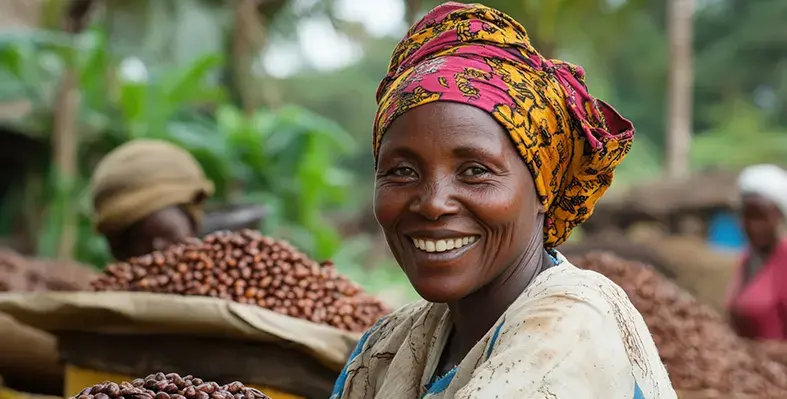Initiatives are being undertaken to combat the challenges faced by rural women that are deeply rooted in structural inequalities
Although women dominate informal cross-border trade in Africa, making up 70% of informal traders in some regions, they face bureaucratic hurdles, high tariffs, corruption at border posts, and a lack of awareness regarding trade policies. Many high-value markets require certifications, packaging, and logistics—all of which require financial investment that rural women often lack. Without capital, they remain restricted to local markets where competition is high and profits are lower.
Land ownership is another major hurdle. In many rural communities, land inheritance laws and cultural norms favor men, leaving women to farm on borrowed or leased land. This lack of ownership discourages long-term investments in soil improvement and productivity-enhancing innovations, keeping women in subsistence farming. Unstable markets further compound these issues. Without reliable price controls, rural women are often forced to sell their produce at low prices to avoid post-harvest losses. The absence of storage facilities and market linkages exacerbates this problem, with post-harvest losses estimated at 30-40% in sub-Saharan Africa.
Addressing these challenges requires a multi-faceted approach. Dr Ibrahim Assane Mayaki, an African Union Special Envoy for Food Systems advises women farmers to form or join cooperatives, which can help them collectively bargain for better prices, access bulk purchasing discounts on inputs, and eliminate exploitative middlemen. Cooperatives should also develop digital marketplaces and mobile trading platforms where women can connect directly with buyers, ensuring fairer pricing. Governments, NGOs, and financial institutions must design gender-responsive credit facilities, including collateral-free loans and microfinance programmes tailored for women farmers. Expanding mobile banking and digital wallets to rural areas can facilitate transactions and savings. Additionally, financial literacy training should be introduced to help women under stand budgeting, credit management, and investment strategies.
Legal reforms that promote equal land ownership rights for women are crucial. Advocacy efforts should focus on ensuring that inheritance laws are equitable and that women farmers have secure land tenure, enabling them to make long-term investments in their farms. Governments and private sector players should invest in structured market systems, including farmer markets, digital trading platforms, and cold storage facilities. Participation in regional agricultural exhibitions and trade fairs should also be promoted to connect rural women with larger markets. Contract farming initiatives, where agribusiness firms engage directly with women farmers, can ensure fair pricing and market security. To enhance cross-border trade opportunities, trade regulations should be simplified, and training on trade policies and export procedures provided. Setting up cross-border trade facilitation desks can also offer guidance and protection against exploitation at borders.
By empowering rural women farmers, implementing sustainable policies, strengthening access to credit, and ensuring better market integration, we can transform Africa’s agricultural landscape.





